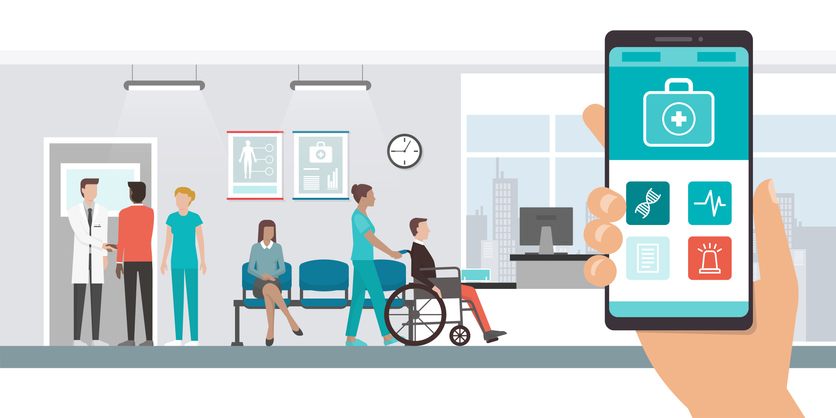 The potential for aggregating disparate data to reveal hidden truths and compelling insights for both patients and healthcare providers has created a bustling interest in companies that can produce a way for this data to be easily transmitted and integrated either through electronic health records or the cloud.
The potential for aggregating disparate data to reveal hidden truths and compelling insights for both patients and healthcare providers has created a bustling interest in companies that can produce a way for this data to be easily transmitted and integrated either through electronic health records or the cloud.
It’s not an easy balance to strike. It requires insight not only into workflows and physicians’ priorities, but also a feel for how to present information in a timely way, in the right amount, without overwhelming users. Cerner veteran Jim Higgins co-founded the diabetes data aggregation business TreVia Digital Health where he is vice president of engineering. He served as engineering director at the health vendor. The company applies some of the lessons learned from the EHR vendor to its platform.
In a phone interview with TreVia President and COO Maureen Peszko (who joined the five year-old company about 1.5 years ago), she talked about some of its ambitions and its recent fundraise as part of a $10 million Series B round to support product development.Peszko was senior vice president of strategic operations with Highmark prior to joining TreVia. She, too, worked in senior management roles with Cerner, but also Sage Healthcare.

With the Rise of AI, What IP Disputes in Healthcare Are Likely to Emerge?
Munck Wilson Mandala Partner Greg Howison shared his perspective on some of the legal ramifications around AI, IP, connected devices and the data they generate, in response to emailed questions.
Peszko refers to its approach as holistic diabetes care. Although the company has a significant foundation in diabetic retinopathy, it shifted and expanded its business strategy last year.
Dr David Dyer, co-founder and Chief Medical Officer, is a retina specialist with a focus on diabetes.
“We moved into neuropathy, measuring blood flow to hands and feet, because its onset can cause diabetic foot ulcers, the leading cause of amputations for diabetics.” It partnered with Prosenex, a medical device developer founded by Boris Golosarsky, a Boston physician who also serves as its chief medical officer. It developed an FDA-cleared screening device for people with diabetes to detect peripheral neuropathy as well as for pre-diabetes patients who have not yet shown any clinical symptoms so it can at least establish a patient baseline for future screenings.
In addition to its diagnostic device partnerships, it’s also working with artificial intelligence applications for something like a health coach through a collaboration with a company called Thrive. This has been a source of some of its recent product development efforts. It plans to add population health and predictive analytics as well.
In addition to transmitting useful diagnostics data to specialists, the company would provide a way for patients to receive helpful reminders in areas like diet and lifestyle choices. It would initially focus on patients who have found it particularly tough to manage their chronic condition. It sounds a little bit like an approach that WellTok has developed as part of a health and wellness platform geared to a broader population that harnesses the brain of IBM Watson to learn and understand users’ individual health needs.
Peszko said that although its platform will initially target patients who are vulnerable to complications from diabetes, the company also wants its approach to be more proactive than reactive. “We really want to focus on pre-diabetes or people recently diagnosed with diabetes because we can have more of an impact.” That resonates with insurers seeking to control costs.
Peszko sees its approach as complementary to electronic medical record providers. Among its health IT vendor partners are Allscripts and athenahealth.
“They don’t have the capacity to go deep into the diabetes space,” Peszko said. “Technology changes so fast in the device space; if you are tied to one device, it becomes problematic. We are totally device agnostic. We are an integration platform.”
Peszko said its approach would provide patient insights to physicians between appointments but it could also offer value to pharmaceutical companies and payers through big data insights.
TreVia’s approach is interesting because it is focusing on diabetes diagnostic device results and co-morbidities associated with the chronic condition. It seems like a company in the midst of an exciting experiment and I look forward to following its evolution.
Photo: BigStock Photo














